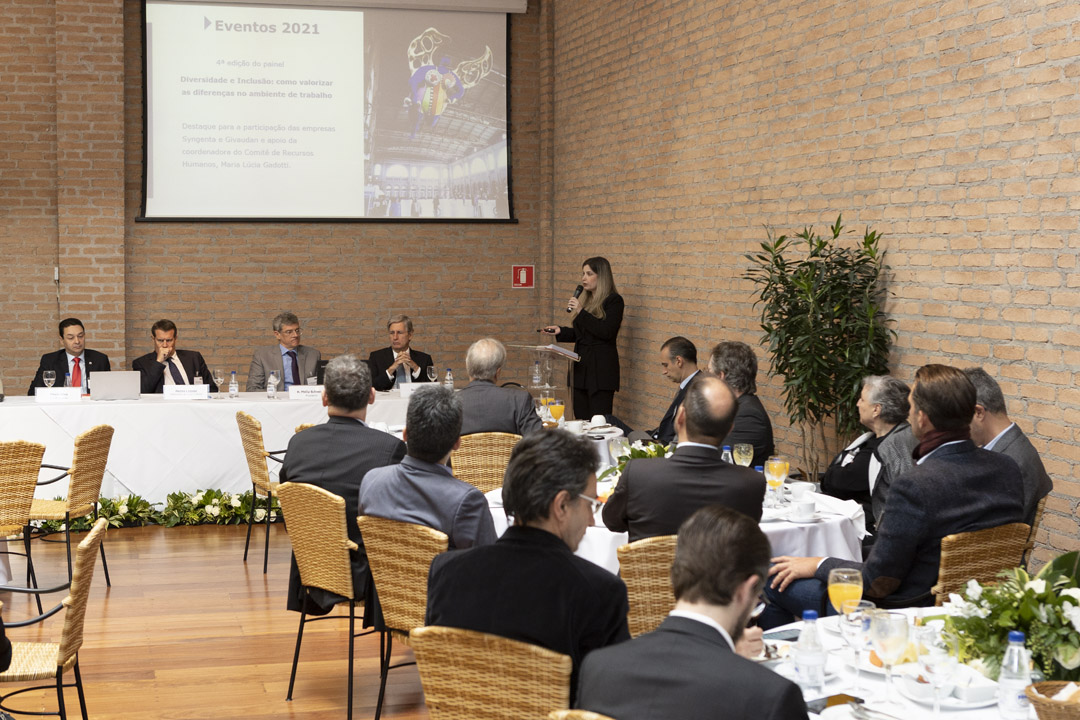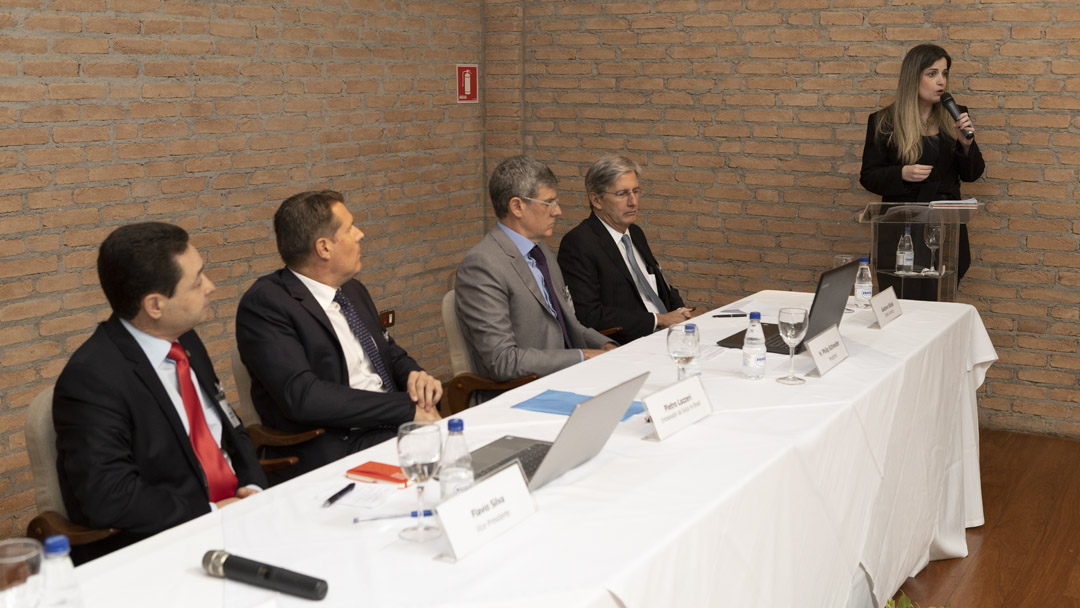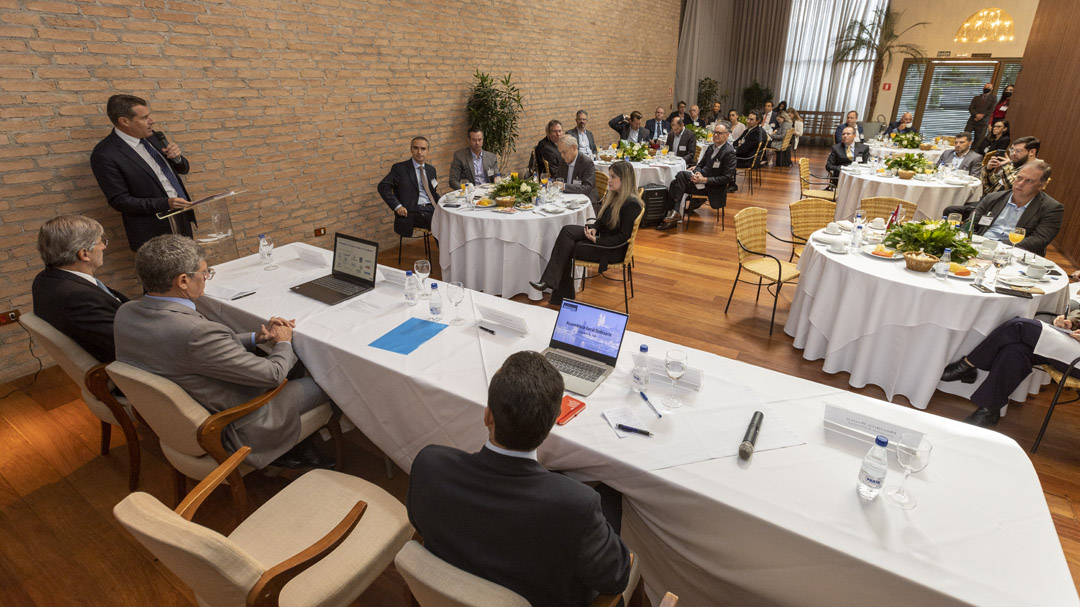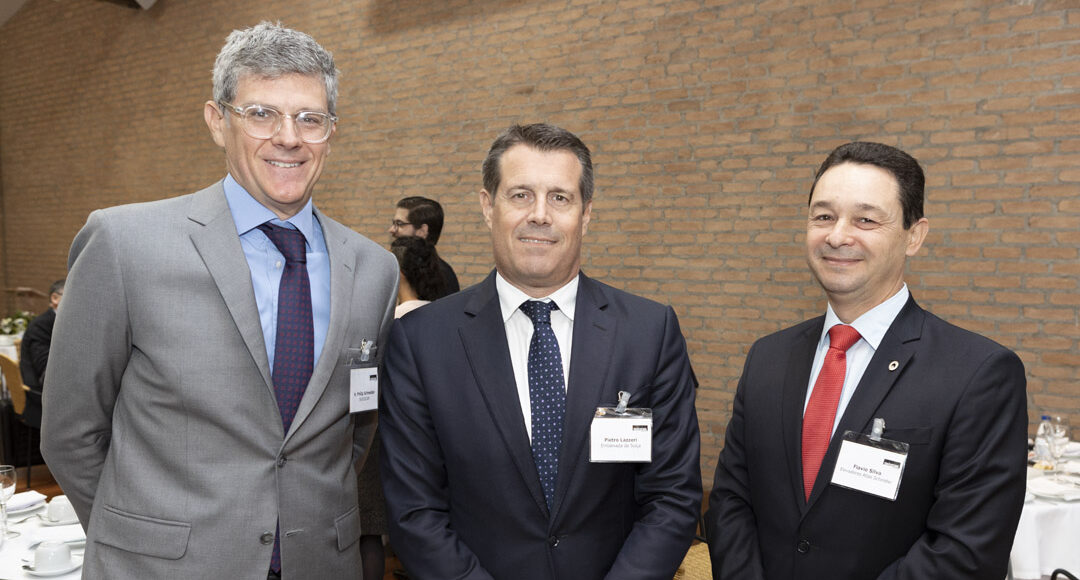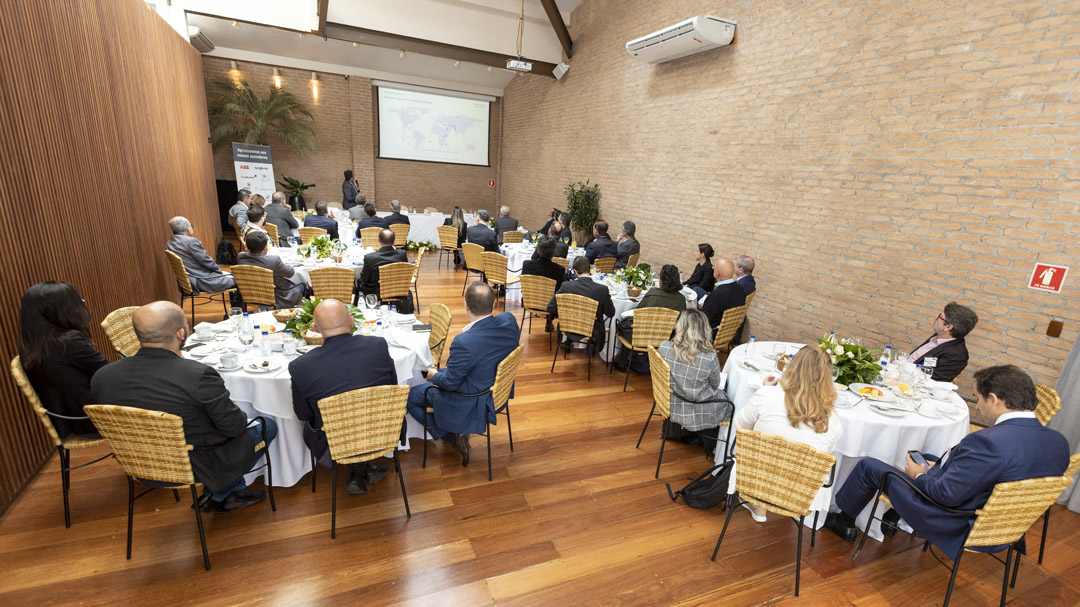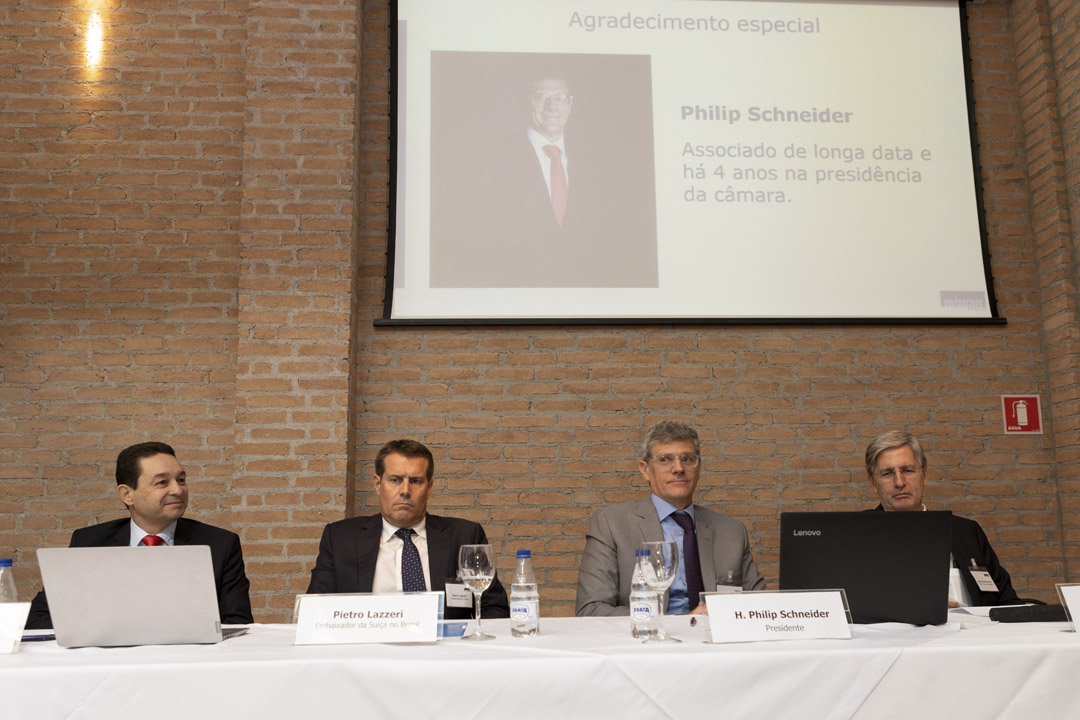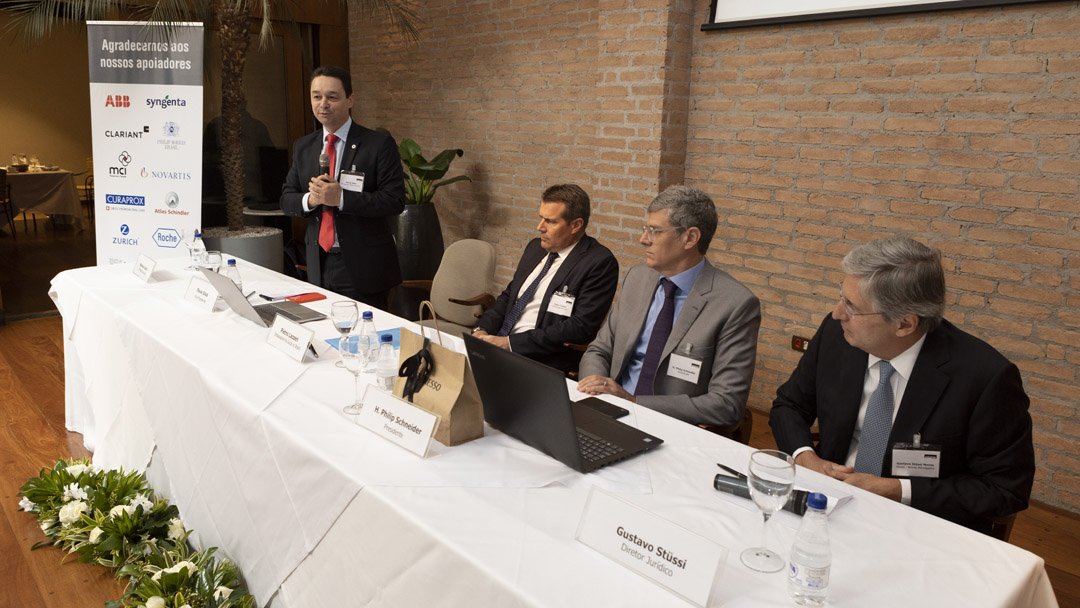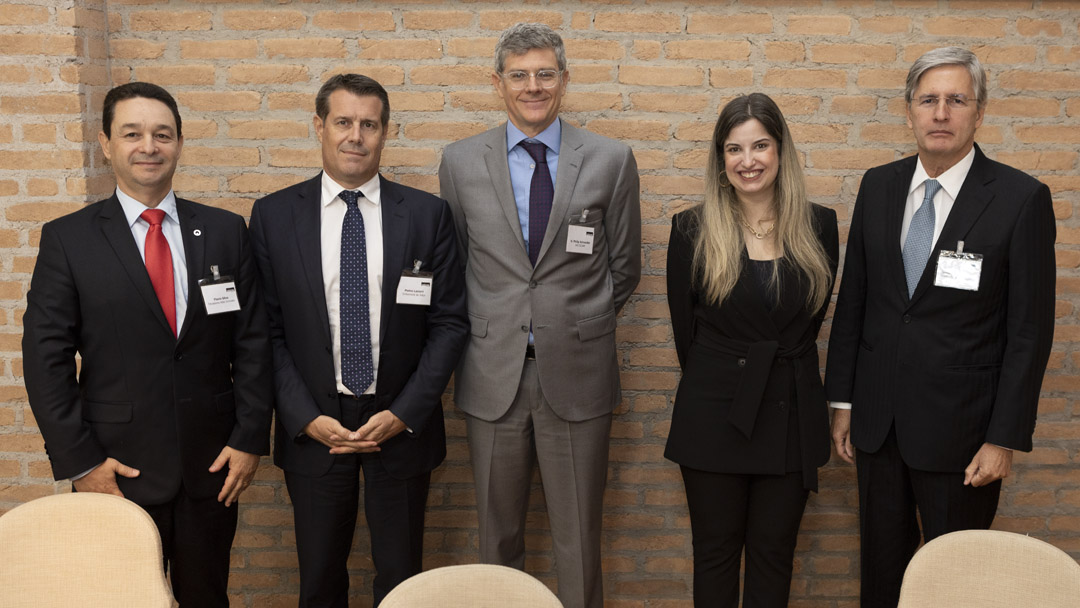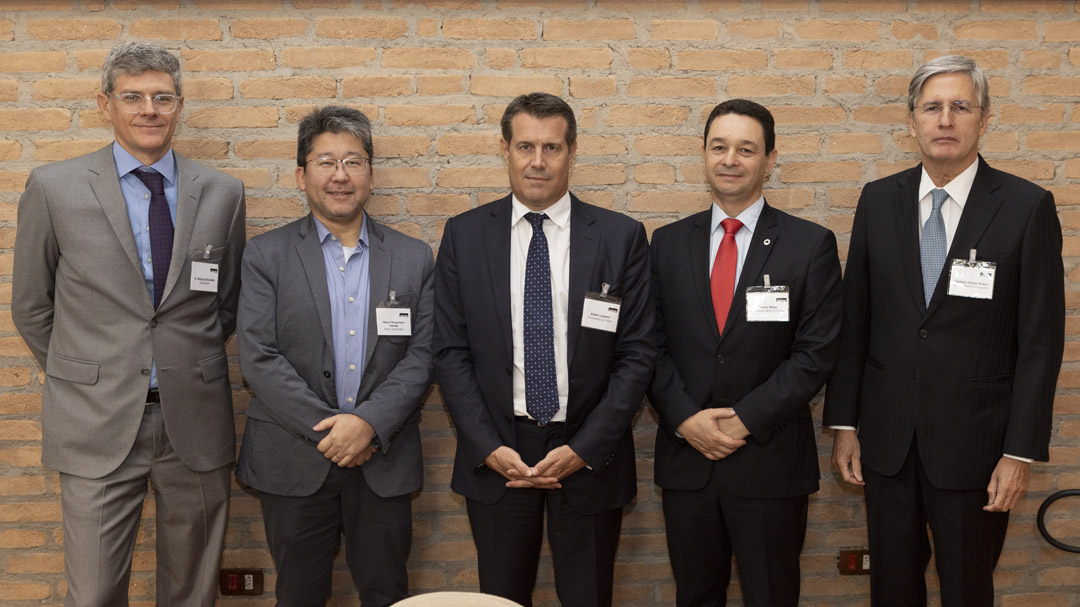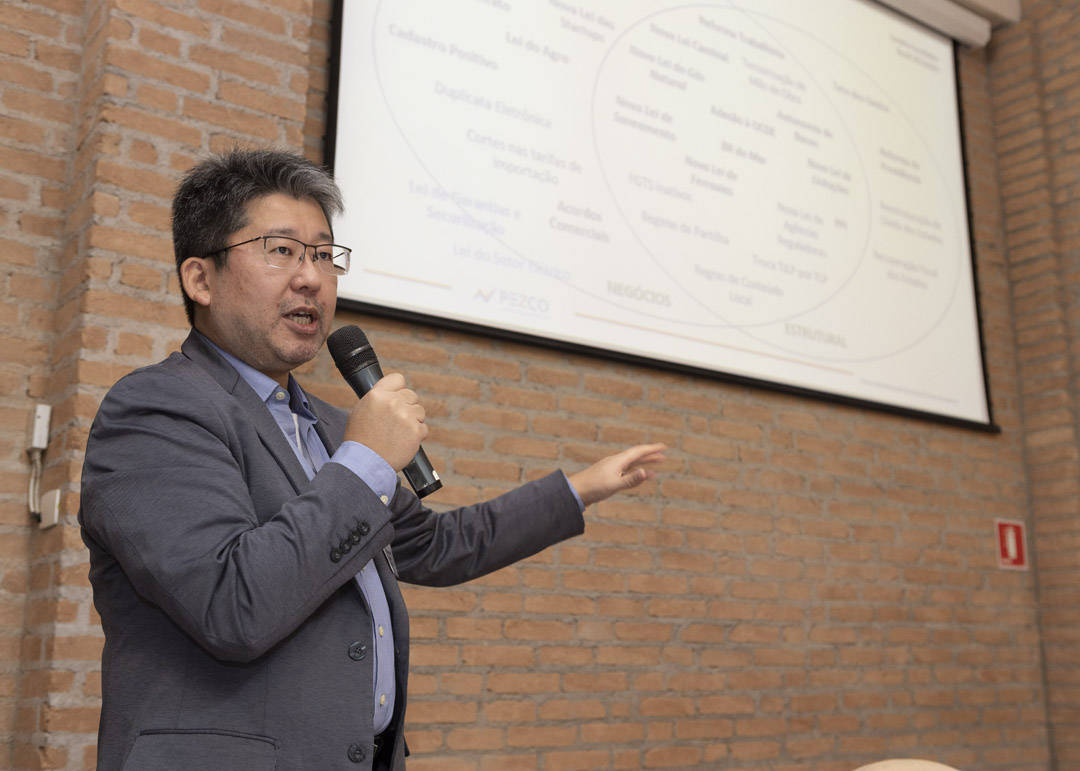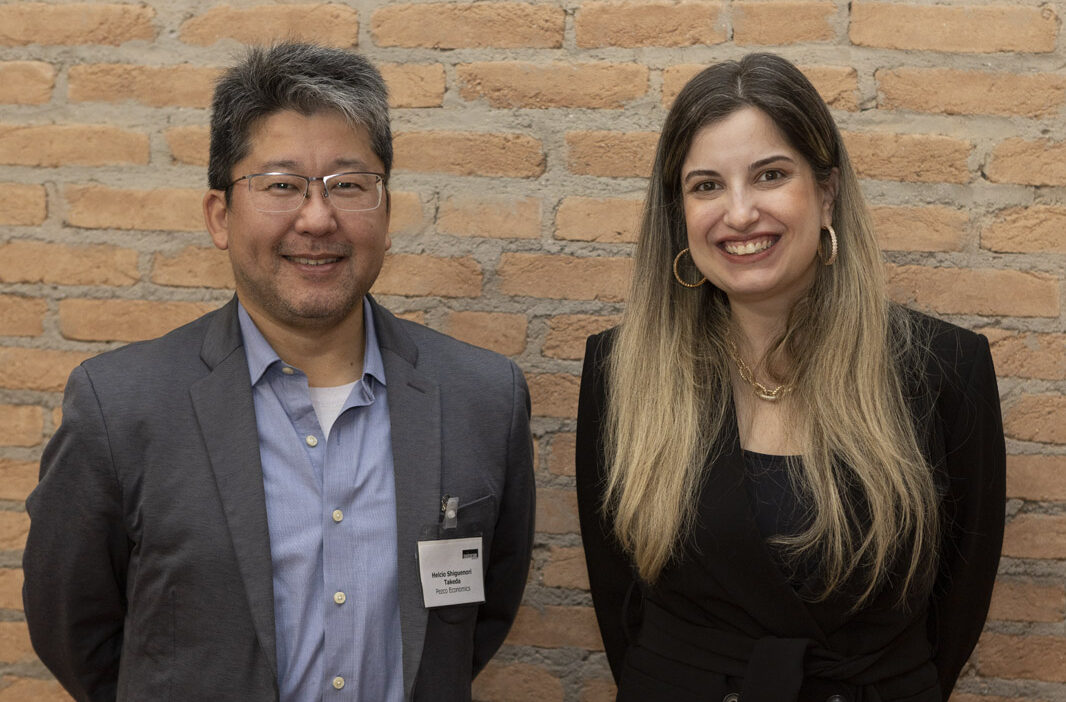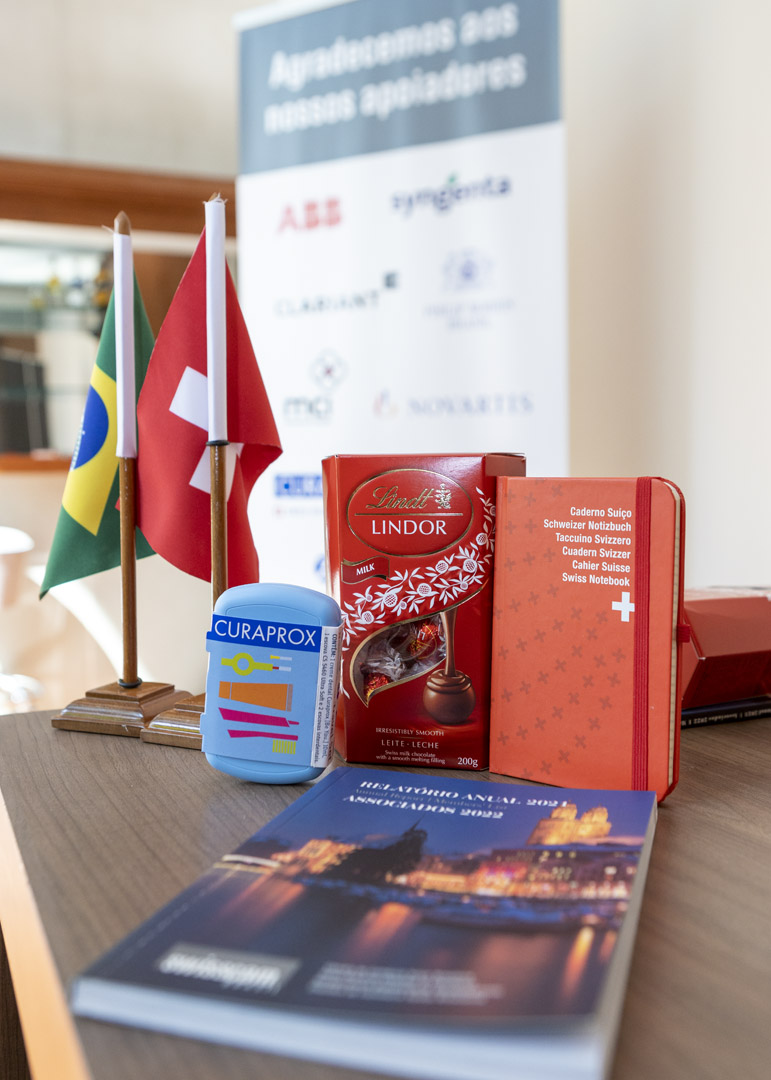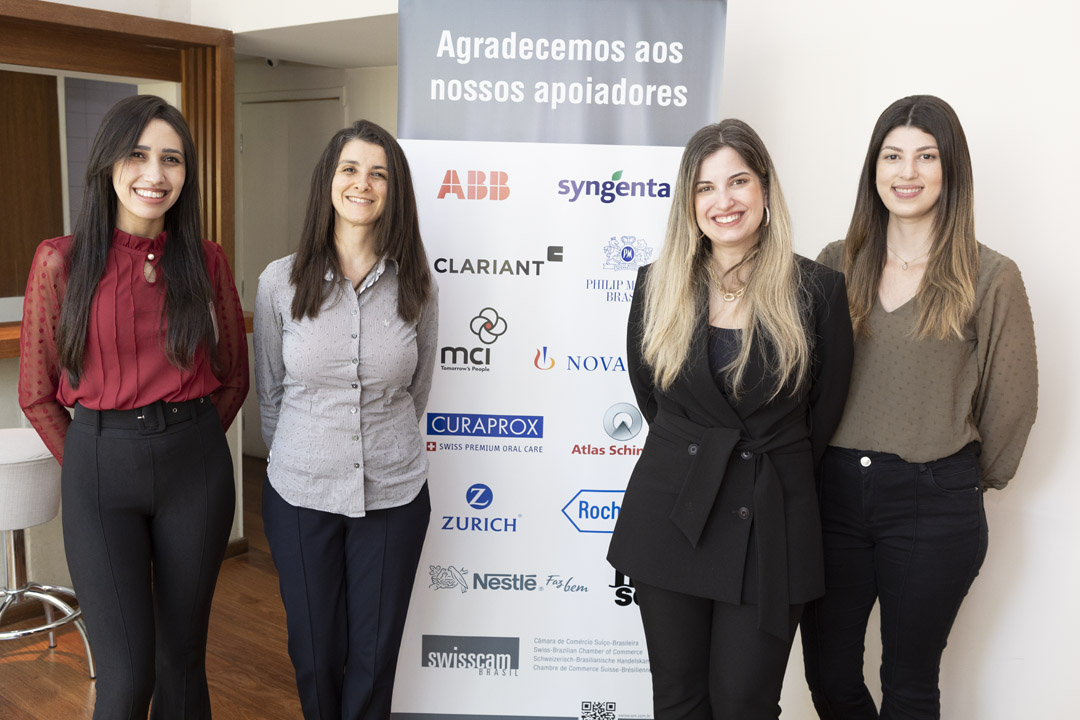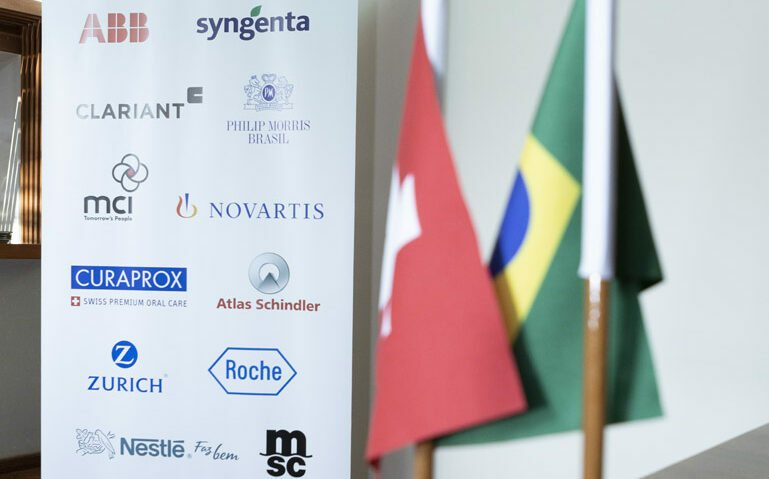On April 19, 2022, SWISSCAM’s Annual General Meeting was held at Cantaloup restaurant in São Paulo.
President Philip Schneider welcomed all members and gave the floor to the Swiss Ambassador to Brazil Pietro Lazzeri, who thanked the companies in Brazil for their excellent work. He highlighted the country’s efforts throughout the pandemic and the resumption of the economy. However, this return brought additional challenges such as inflation and a shortage of inputs in industry, exacerbated by the conflict in Ukraine. On this last point, the Ambassador emphasized the Swiss neutrality, an important element of Switzerland’s foreign and security policy. In his words, neutrality does not mean indifference. This is why the Federal Council also adopted sanctions against Russia, but reaffirms that Switzerland was, is and will be neutral.
Regarding bilateral relations, the Ambassador informed that Brazil is Switzerland’s main economic and trade partner in Latin America, with approximately 25% of Swiss exports arriving in the country. He mentioned cooperation in the areas of education, research, science, in addition to cultural exchange and the large Swiss community present in Brazil with historical roots.
The Swiss government’s new foreign policy strategy for the Americas places Brazil as a global priority partner, further strengthening Switzerland’s presence and collaboration in some specific areas: economic and trade exchanges, sustainability, digitalization and infrastructure.
Switzerland is among the 10 largest investors in Brazil with more than 400 Swiss companies operating in the country, generating more than 62 thousand direct jobs. Political dialogue also remains intense. In March, the fifth meeting of the Swiss-Brazil Joint Commission on Science, Technology and Innovation took place in Bern and, in April, the 10th round of political consultations with Secretary of State Livia Leu and Secretary General of Itamaraty Fernando Simas Magalhães, whose discussions addressed political and economic relations, sustainability, human rights, research and innovation, and regional and international affairs. Other important dialogues were also mentioned, including political security, intellectual property, in addition to the economic one, which will receive the visit of the Swiss Secretary of State for economic affairs in June.
The Ambassador recalled that in January the agreement to avoid double taxation came into force, an important step towards providing a clear legal and fiscal framework and facilitating investments. As for the free trade agreement between EFTA and Mercosur, there is still a long way to go to get to ratification and implementation, which requires efforts at the governmental, legislative and private levels. In this sense, a Brazilian delegation will be in Switzerland in the coming days to discuss sustainable agriculture.
To promote the best practices of Swiss companies in innovation, sustainability and infrastructure, the Embassy held a roadshow in Paraná with the Swiss Business Hub, Swissnex, Switzerland Tourism and with the support of SWISSCAM. There is great potential for innovative partnerships in water resources and solid waste management, mobility, infrastructure and renewable energy generation.
After mapping the sustainability initiatives of Swiss companies and entities in Brazil, the Embassy announced the creation of the Swiss Sustainability and Innovation Award. To end his speech, the Ambassador announced the holding of an itinerant exhibition on the Swiss contribution to Brazil, on the occasion of the bicentennial of Brazil’s independence, featuring 10 Swiss people who contributed to the country’s economic, cultural and social development. Soon more information will be released.
Executive Director Mariana Badra continued the event by presenting the activities carried out in 2021, the financial result for the year, the board of directors and the budget for 2022 and the planned activities. Mariana emphasized that members can participate in SWISSCAM’s communication channels through collaborative posts, dissemination of events, discounts and special conditions on products and services, informative articles and classifieds.
Legal Director Gustavo Stüssi conducted the formalities for approving the accounts and electing the board, where new members were elected: Ana Cristina Moeri (Instituto Ekos Brasil) as the new Vice-President, Pedro Varela (Nestlé) as the new Financial Director, Igor Tobias ( MCI) as the new Events Director, Felipe Bonifatti (SWISS) as the new Advisor and Philipp Klose-Morero (Rödl & Partner) and Patrick Wächter as Financial Counselors. Flavio Silva (Atlas Schindler) who held the position of Vice-President since 2019 was elected the new President of SWISSCAM.
Flavio Silva is President of Elevadores Atlas Schindler Ltda. His trajectory encompasses more than 25 years of experience as operations leader in Brazil and in other countries. He was president of Voith Paper Máquinas e Equipamentos Ltda., and has international experience in Canada, working in the areas of engineering, process, sales and leadership positions at Vale S.A. Flavio is a mechanical engineer graduated from FEI and a business administrator from Fundação Getúlio Vargas, holds MBAs in Project and Knowledge Management from FIA/USP/PMI, in addition to professional development programs at MIT (USA) and INSEAD (France).
Philip Schneider said goodbye to the presidency thanking the associates, the team for their dedication in the 4 intense years of presidency and the members of the board of directors, Ambassador Pietro Lazzeri, Gustavo Stüssi and Flavio Silva.
The new President Flavio Silva addressed a few words to the associates, affirming his commitment to further promoting the chamber and continuing its good management, showing his recognition to the governing body and the partner entities that work for the promotion of relations between Brazil and Switzerland.
At the end of the Assembly, we had a lecture given by Helcio Takeda, Managing Partner of Pezco Economics, who addressed the theme “Presidential elections and the post-2022 economic scenario”.
Helcio divided his presentation into two blocks, the first block of challenges and the second block of opportunities. In the first block, he initially cites the pandemic and war, highlighting two risks mapped by the Allianz group: cyber attacks and business interruption associated with changes in legislation and regulation. With the immunization program, the pandemic will likely cease to be a problem in the coming months. On the other hand, the sanctions caused by the war generated bottlenecks and impacts on the supply chain, and high inflation is here to stay.
In the short term, the world economy is still growing relatively well, forecast at around 4%. The estimate for inflation over a horizon of 18 to 20 months is 4 to 5% for developed countries and 7 to 8% for emerging countries, influenced by the high level of commodity prices, with some metals reaching historic highs.
Another challenge, more at the local level, is the political environment. Hélcio analyzed some data on the profile of the Brazilian electorate, which shows an important portion of younger voters concentrated in the northern part of the country. The resumption of employment levels from before the pandemic, the adoption of public policies that reduce the feeling of loss of income and inflation falling from 10% to approximately 7% by the end of the year, in addition to the change from Bolsa Família to Auxílio Brasil , are some factors that may guide the decision to vote in this year’s elections.
Regarding presidential candidates, the scenario is one of polarization between Lula and Bolsonaro. There is no strong name that makes a third way possible, unless there is an eventual withdrawal from Lula’s candidacy. A ticket with, for example, Haddad/Alckmin would face less resistance from bringing voters in from the centre.
Moving on to the block of opportunities, Hélcio illustrates the path of transformation in Brazil as a cycle where there are periods of reforms (1960s, 1990s and 2020s), which in turn generate periods of growth (1970s, 2000s and 2030s??) , and the latter leads to the adoption of irresponsible policies that generate periods of fatigue and turmoil (1980s, 2010s and 2040s??), which leads to a return to the reform phase.
In the current period of reforms, Hélcio highlights: Ceiling on Spending, Pension Reform, Labor Reform, Railroad Framework, Sanitation, Natural Gas, Cabotage, Central Bank Autonomy, Foreign Exchange Law, New Bankruptcy Law, Startups Law, among others measures that affect both the structural side of the economy in terms of public budget management, reducing fiscal risk, and the business side.
Especially the measure of the spending ceiling should reduce public debt, as well as Brazil’s risk premium. The devaluation of the currency, which has contributed to the trade balance surplus, added to the flow of foreign direct investment, international reserves and an interest rate estimated at around 13 to 14% in the second half of the year, tend to favor a resumption in the flow of capital.
Regardless of the outcome of the elections, Hélcio stressed that it seems unlikely that this dynamic of reforms will be reversed. It is observed that the National Congress is committed to the reform agenda. In addition, Brazil’s accession process to the OECD, considered an event with a parallel effect to the Real Plan, consolidates the reform environment and paves the way for advancing in other more challenging reforms, such as the tax reform, to improve the country’s competitiveness.
Photos: Ulisses Matandos

